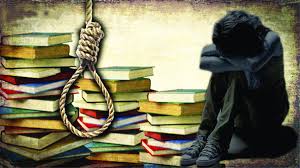
Questions about India’s education system have been raised time and again. The contradictions, pressures, and insensitivities within this system have created a frightening reality — around 14,000 school children in India die by suicide every year, according to the National Crime Records Bureau (NCRB). Even more alarming, student suicides have increased by 65% in the past decade, and by 34% since 2019. These are not just numbers — they are the graves of innocent dreams crushed by an inhuman education mechanism. Behind these deaths lie the unbearable burdens of academic competition, parental ambition, and institutional apathy. This is not an isolated crisis—it mirrors the collective failure of India’s educational ethos. The Supreme Court has recently sought explanations from state governments, questioning whether schools and colleges are fulfilling their responsibility toward students’ mental health. How long will education remain a battlefield of competition instead of a journey of discovery?

From early childhood, students are thrown into a relentless race where marks, grades, and ranks define their worth — not knowledge, creativity, or character. Schools have become exam factories; teachers and parents measure success only by results. Education, instead of nurturing the soul, has become a stress-producing machinery. The threefold pressure of coaching classes, parental expectations, and fear of failure slowly breaks a child’s spirit. NCRB data reveals the leading causes of student suicides: exam failure, parental pressure, anxiety about the future, and depression. India ranks among the top nations for teenage depression and suicide. As Kabir said, “Reading and learning make a scholar, but not a man of understanding.” Our education produces informed minds but not enlightened beings. The rote-learning culture, mark-based evaluation, and emotional disconnect of teachers inject fear, not confidence, into children. Cities like Kota, Patna, Hyderabad, and Chennai have become tragic symbols of this industrialized education. Every year, dozens of young aspirants there end their lives. What thrives is not education, but the business of competition. Living away from home, students are haunted by fear and isolation — until despair consumes them.
The National Education Policy (NEP 2020) had promised a shift toward creative and holistic learning — “joyful education” and “reduced exam pressure.” But in reality, little has changed. The obsession with marks continues, unemployment looms large, and the coaching industry flourishes. The policy fails to address the mental health crisis of students. Unless education is redefined as a tool for human development, it will continue producing both unemployed graduates and lost souls. The Supreme Court has now asked central and state governments to submit detailed reports within eight weeks on suicide-prevention measures in educational institutions. But should a nation’s highest court need to remind us that saving our children’s lives is urgent? Mahatma Gandhi said, “True education means the harmonious development of body, mind, and soul.” Swami Vivekananda added, “Education is that which builds self-confidence, self-control, and strength.” Yet today’s education nourishes neither the body nor the mind nor the spirit. Children carry the weight of books, not the wisdom of life. They are taught that failure is a sin — though, in truth, failure is the greatest teacher of life.
Parents and teachers must realize that a child is not a project but a living soul. Before shaping them into models of success, we must let them blossom naturally. When teachers become mere evaluators and parents judge worth by report cards, the child’s self-esteem withers. What we need is emotional dialogue — at home and in school — where children can share their fears and failures without judgment. Mental health remains neglected in Indian education. Most schools lack even a basic counseling system. Students are never taught how to manage stress, accept failure, or express emotions. The so-called “toppers” are often those silently breaking inside. Many who end their lives never spoke of their pain to anyone.
Education must become a medium of life-understanding, not merely information transfer. Until children learn that life is larger than a mark sheet, this crisis will persist. Schools must integrate meditation, yoga, art, music, and value education into daily learning. We need a culture of compassion, not competition. Education should not merely produce degrees, but develop resilience, creativity, and emotional strength. When a child begins to believe that death is easier than life, it reflects our collective failure — of families, teachers, and society. The purpose of education cannot be limited to academics alone. The real question is: Are we educating our children or slowly breaking them? When learning becomes a reason for suicide, education turns self-destructive. What we urgently need is education that teaches children to love life, not escape it. As Sri Aurobindo said, “True education is that which brings out the divine within.” The time has come to redefine our educational goals — where personality matters more than performance, creativity more than competition, and happiness more than success. If we fail to act, the number 14,000 will rise — not as a statistic, but as the haunting testimony of our national insensitivity. The epidemic of student suicides is not merely a tragedy; it is a moral and emotional emergency demanding immediate reform